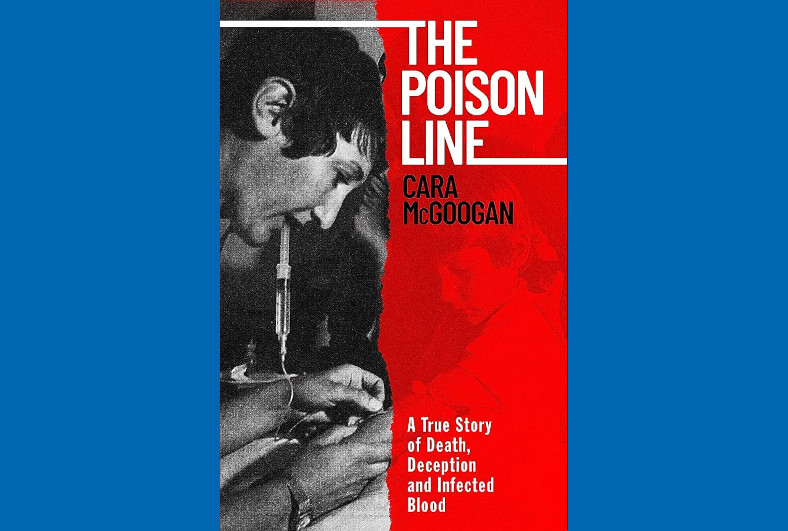Investigative journalism, scandals and writing for audio – An interview with the Bed of Lies’ Cara McGoogan

2023 has been the year for scandal. From Boris Johnson and Partygate to the Post Office Horizon IT scandal to the current issues around RAAC in schools. The media have been unearthing and shedding light on numerous incidents and problems through some excellent investigative journalism.
A journalist that has been digging into another, slightly older, scandal is the host of the Telegraph’s award-winning Bed of Lies podcast, Cara McGoogan. She covered the Infected Blood Inquiry for the Telegraph back in 2019 which eventually resulted in her publishing debut book, The Poison Line. We caught up with Cara to talk about investigative journalism, podcasting and writing for audio.

Can you introduce your book in a couple of sentences?
The Poison Line is the true story of a miracle drug that turned deadly. It details the full and shocking account of the biggest NHS treatment disaster – and the lengths that pharmaceutical companies and governments worldwide took to cover it up.
Could you tell us about how you came to write The Poison Line?
The infected blood scandal was finally given the scrutiny it deserved some thirty-five years after the fact when the Infected Blood Inquiry opened in 2019. I was reporting on the inquiry in the opening week of hearings and wrote two features for the Telegraph that weekend. Ignorant to this disaster, in which nearly three thousand people died after treatment with blood products and transfusions, I kept reporting the story, first for the second series of my documentary podcast Bed of Lies, then for The Poison Line.
Are you working on another book, or do you have other projects under way?
I’m working on a third series of Bed of Lies, which will be released in Spring next year and is about another unaddressed British scandal. I am interested in giving a voice to real people who have had to fight institutional and governmental cover-up in the pursuit of justice.
What books are you reading right now, or about to pick up?
While writing The Poison Line I read some incredible non-fiction, including Sam Knight’s Premonitions Bureau, Truman Capote’s In Cold Blood and Janet Malcolm’s The Journalist and the Murderer. Breaking from non-fiction now that I have finished writing, I am currently reading my friend and fellow journalist Clémence Michallon’s new novel The Quiet Tenant, which is a pacy and gripping account of a serial killer through the eyes of his female victims and relatives.
You write and host the award winning podcast Bed of Lies, how did the podcast come about?
I was a feature writer at the Telegraph when I pitched the first series of Bed of Lies to our head of audio Theodora Louloudis. She agreed that the story of women who had been deceived into long-term relationships by undercover police officers who were spying on them needed to be told. We hired freelance producer Sarah Peters and got underway in time for the opening of the Undercover Policing Inquiry.
What were some of the challenges of basing a podcast around a piece of investigative journalism?
The two main considerations when making a podcast are your duties to the characters and to the listeners. It is important to earn characters’ trust for these kinds of investigations, ensuring they feel comfortable sharing their stories, especially when the details can be retraumatising. I have always taken care not to sensationalise my reporting. For the listeners, it comes down to giving just the right amount of information, so they can follow along and want to continue episode to episode.
What’s the difference between writing journalism for audio compared to writing for the paper or a website?
You have to think carefully about how to structure the story so that listeners stay with you for four hours or more. In order to do this, we make sure the interviewees are developed as well-rounded characters and intricately plan how to travel through the beats of the story.
What advice would you give to any journalists looking to get into podcasting?
Listen to loads of podcasts. That sounds obvious, but it helps to be enthusiastic and understand the industry. Cheekily, I’d recommend Bed of Lies as a starting point. If you find something you like don’t hesitate to get in touch with the creators and tell them – we all love to hear directly from listeners and you never know where the connection could take you. Get used to recording your interviews and listening back to them to find the best moments and scenes. There are plenty of resources out there like Transom, Third Coast conferences and newsletters about the craft you can tap into.
Pick up a copy of The Poison Line here and follow Cara on X (formerly Twitter). Also, if you’re a journalist who is interested in writing your own book then check out advice from a JournoResources event here.